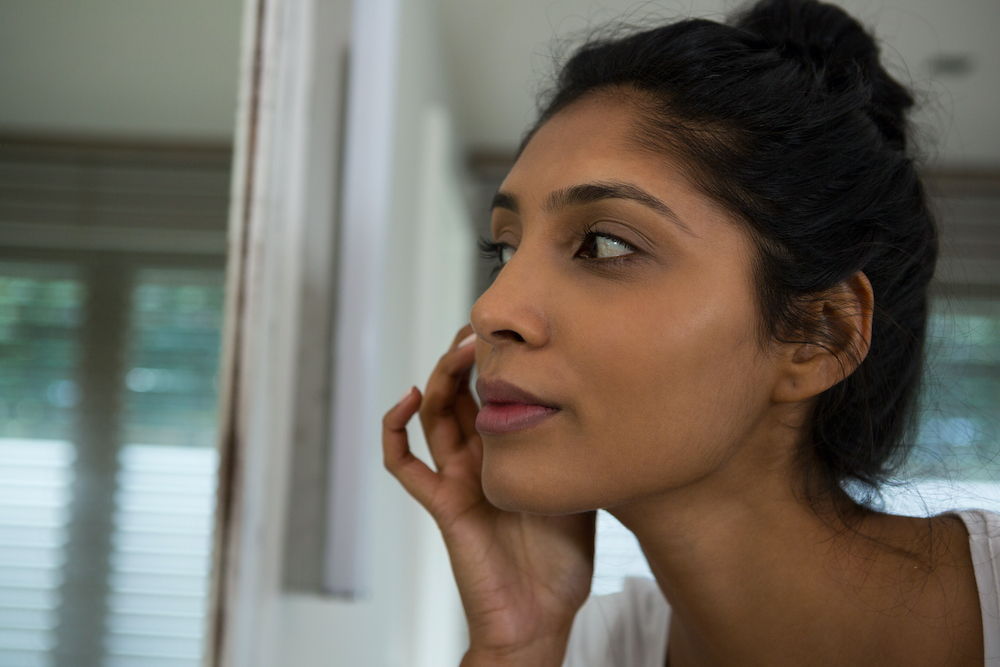What to Expect During an Annual Skin Check?

For most people, an annual visit to the doctor or dentist is just a part of their normal healthcare routine. Regular physical exams and teeth cleanings are a way to ensure that things are progressing the way they should, and to spot potential issues before they become serious health concerns.
Even though our skin is our largest organ, very few people think to include an annual visit to the dermatologist as part of their regular health checks. A dermatologist visit is one of the best things you can do to maintain your overall health. Skin cancer is one of the most common forms of cancer in the United States, making it all the more vital that you stay on top of screenings. A board-certified dermatologist can perform an annual skin check to identify abnormal moles and provide early detection of skin cancer.
Annual Skin Cancer Screenings with a Dermatologist
Skin cancer is common but in many cases preventable with early detection. Knowing what to look for on your skin and getting annual skin exams from your dermatologist will help you identify issues early and take actions to cure it before it becomes dangerous.
Who should get a skin cancer screening?
It is recommended that all adults and those with specific risk factors get an annual skin exam. Risk factors may include:
- A family history of skin cancer
- The use of tanning beds
- History of severe sun burns or blistering
- Large numbers of moles
- History of atypical moles or the rapid or changing appearance of moles
- An organ transplant recipient
What to expect during your skin exam?
A full-body scan is the best way to establish a baseline for your skin. During your full-body exam, your dermatologist will look for abnormal moles or spots that may be cause for concern. The results of the exam are documented so that they can be compared to future exams, helping you track changes in your skin. The exam will screen for skin cancers including basal cell carcinomas, squamous cell carcinomas and melanomas.
How should you prepare for a full-body skin exam?
Prior to your appointment, it is helpful to perform a self-exam to identify any new spots or those that have recently changed in size, color or texture. You may also want to interview close family members to discover if they have had a history of skin cancer, since your family medical history will be discussed during the exam.
Other preparations you can make for your skin cancer screening include:
- Removing nail polish
- Arriving without any makeup
- Wearing your hair loose
- Removing bandages or any other skin coverings
- Removing jewelry
What is checked during a skin cancer screening?
When you first arrive, your doctor will perform a medical history and ask you questions about your skin and any concerns you may have. The full-body exam will cover your entire body from head to toe, especially areas that are hard to see on your own such as your scalp and back. Other places the dermatologist may check include:
- Scalp
- Inside the mouth
- Back
- Buttocks
- Arms
- Hands
- Soles of the feet
- Fingernails
- Toes
- Ears
- Eyes and eyelids
The dermatologist may or may not check the genital area. If you have a concern about skin in this region, bring it up to the doctor so he or she can perform a screening. If you are uncomfortable with this type of exam from your dermatologist, you can deny it during your skin cancer screening. However, it is recommended that you ask your gynecologist, urologist or general practitioner to perform a skin check of the genital area during your next appointment.
What is the doctor screening for?
During a typical skin cancer screening, your dermatologist will count your moles. More than 50 moles can be an indication of an increased risk for melanoma. Other moles will be evaluated using the ABCDE guidelines. This helps determine if a mole is suspicious, unusual and possibly cancerous.
A- Asymmetry
B- Border Irregularity
C- Color
D- Diameter
E- Evolving
What happens if the dermatologist finds something during the exam?
If there are any concerning areas during the screening, your doctor will document it by taking notes and a picture of the spot. Then, the doctor may perform a biopsy so the suspicious tissue can be tested in a laboratory. During a biopsy, the area will be cleaned and numbed before a small section of the tissue is removed using a scalpel or blade. If the biopsy comes back positive for skin cancer, you will be asked to return to discuss your treatment options.
Buckhead Dermatology of Atlanta – Skin Cancer Screenings
If you live in the Atlanta area, schedule an appointment with Buckhead Dermatology today for an annual skin cancer screening. Dr. Straughn will perform a thorough, full-body skin exam to detect early signs of skin cancer and treat abnormal moles that may lead to skin cancers such as basal cell carcinomas, squamous cell carcinomas and melanomas.
Call 404-816-4000 to schedule an appointment at our Atlanta or College Park offices today.
